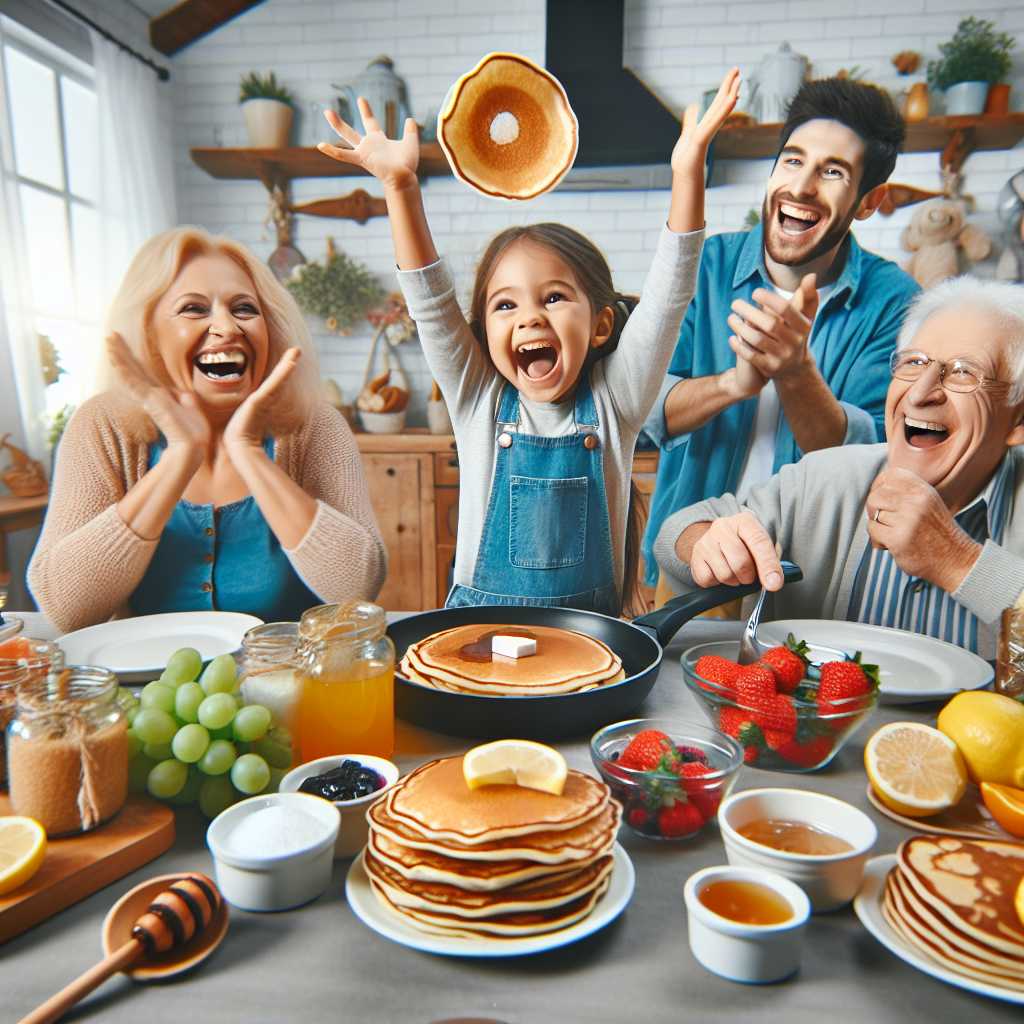Understanding Pancake Day 2024: Origins, Celebrations, and Recipes
Pancake Day, or Shrove Tuesday, is a day that precedes Ash Wednesday, the beginning of Lent in the Christian calendar. On this day, many people across different countries engage in making and eating pancakes. Pancake Day traditionally marks a period of feasting and celebration before the fasting period of Lent. Here we’ll delve into the history and significance of this day, its global reach, various ways it is celebrated, delectable recipes to try out, and some concluding notes on Pancake Day 2024.
A Brief History of Pancake Day
Pancake Day traces its origins back to a Christian religious practice. The day is associated with Shrove Tuesday, the day before Ash Wednesday, which marks the start of the 40 days of Lent leading up to Easter. Historically, during Lent, Christians were required to fast or give up certain types of luxuries as a form of penitence. Shrove Tuesday became a day to use up rich foods like eggs, milk, and sugar that were often forsaken during the Lenten season. As these ingredients can be used to make pancakes, the tradition of consuming pancakes on this day was born.
The word “shrove” is derived from the Old English word “shrive,” meaning to confess all sins. It was common for people to attend confession on this day as part of their pre-Lent preparation. The pancake aspect comes as a practical solution to the need to use up perishables before the strict fasting kicked in.
Global Celebrations and Traditions
Pancake Day is not restricted only to Christian countries but has gained popularity in different parts of the world. Each country may have unique traditions associated with the day.
–
United Kingdom: In the UK, pancake races are a popular tradition where participants run while flipping pancakes in a frying pan.
– United States: Some communities in the U.S. celebrate with Mardi Gras (French for ‘Fat Tuesday’), a larger festival that includes parades and masquerade balls.
– Brazil: This time coincides with Carnival in Brazil where extravagant street festivals are held.
– Poland: Poland celebrates Fat Thursday (Tłusty Czwartek) about a week earlier than Pancake Day, indulging in doughnuts and other sweets. The Pancake Craze: Sweet and Savory Recipes
–
United States: Some communities in the U.S. celebrate with Mardi Gras (French for ‘Fat Tuesday’), a larger festival that includes parades and masquerade balls.
– Brazil: This time coincides with Carnival in Brazil where extravagant street festivals are held.
– Poland: Poland celebrates Fat Thursday (Tłusty Czwartek) about a week earlier than Pancake Day, indulging in doughnuts and other sweets. The Pancake Craze: Sweet and Savory Recipes
–
Brazil: This time coincides with Carnival in Brazil where extravagant street festivals are held.
– Poland: Poland celebrates Fat Thursday (Tłusty Czwartek) about a week earlier than Pancake Day, indulging in doughnuts and other sweets. The Pancake Craze: Sweet and Savory Recipes
–
Poland: Poland celebrates Fat Thursday (Tłusty Czwartek) about a week earlier than Pancake Day, indulging in doughnuts and other sweets. The Pancake Craze: Sweet and Savory Recipes
The Pancake Craze: Sweet and Savory Recipes
On Pancake Day, families come together in their kitchens to whip up batches of pancakes. These might range from traditional wafer-thin crepes to fluffy American-style pancakes or oat-packed Scottish variants known as drop scones.
–
Classic Crepes: Typically made from a simple batter of eggs, flour, milk, and a pinch of salt.
– American Flapjacks: Including a leavening agent like baking powder results in thicker pancakes that rise when cooked.
– Herbal Fusion Pancakes: New pancake varieties often incorporate herbs or spinach for green pancakes loaded with flavor.
– Dessert Pancakes: Chocolate chips, blueberries, or even unconventional toppings like ice cream can transform pancakes into desserts.
–
American Flapjacks: Including a leavening agent like baking powder results in thicker pancakes that rise when cooked.
– Herbal Fusion Pancakes: New pancake varieties often incorporate herbs or spinach for green pancakes loaded with flavor.
– Dessert Pancakes: Chocolate chips, blueberries, or even unconventional toppings like ice cream can transform pancakes into desserts.
–
Herbal Fusion Pancakes: New pancake varieties often incorporate herbs or spinach for green pancakes loaded with flavor.
– Dessert Pancakes: Chocolate chips, blueberries, or even unconventional toppings like ice cream can transform pancakes into desserts.
–
Dessert Pancakes: Chocolate chips, blueberries, or even unconventional toppings like ice cream can transform pancakes into desserts.
Experimentation with pancake toppings is also common, including quintessential lemon juice and caster sugar, maple syrup, fresh fruits, nut butter spreads, or yogurt.
Fun Activities Beyond Eating
Aside from eating, Pancake Day is also an opportunity for various fun activities. Much like in the United Kingdom with pancake races, communities might set up friendly competitions. Meanwhile, for families at home, there can be contests on who can flip a pancake the highest or who creates the most artistic pancake design.
The Importance of Community Engagement
Community organizations often leverage Pancake Day as an opportunity for charity events such as pancake breakfasts. Schools may host pancake-making sessions to teach children about this tradition and indulge in its festive spirit.
